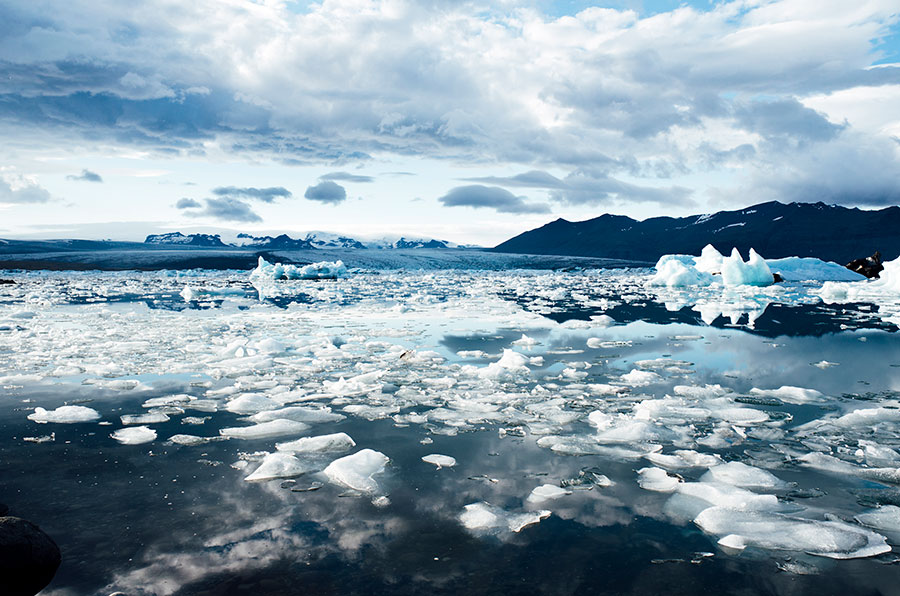
- Vitalii Homon
- May 31, 2021
- Ask Eartha
Dear Eartha, I’ve heard that to avoid the scariest impacts of climate change, we humans need to limit warming to 1.5 degrees Celsius. Are we doing enough to get there? What would it take to hit that target?
 As we emerge from the Covid reality of the past year, it’s worth reflecting on the world we’re returning to. Frankly, most of us have been climate hedonists – driving inefficient cars, living in ever larger houses, and buying all the latest and greatest gizmos and gadgets. And with life returning to normal across most of the world, so are carbon emissions. In fact, the International Energy Agency (more on it below) predicts that global demand for fossil fuels will grow significantly this year.
As we emerge from the Covid reality of the past year, it’s worth reflecting on the world we’re returning to. Frankly, most of us have been climate hedonists – driving inefficient cars, living in ever larger houses, and buying all the latest and greatest gizmos and gadgets. And with life returning to normal across most of the world, so are carbon emissions. In fact, the International Energy Agency (more on it below) predicts that global demand for fossil fuels will grow significantly this year.
Our continued addiction to a fossil-based economy does not aid the quest to limit average global temperature increase to 2 degrees Celsius above pre-industrial levels (that’s 3.6 degrees Fahrenheit). This is the goal of the Paris Agreement, but the Intergovernmental Panel on Climate Change – the United Nations body charged with researching climate change – asserts that it would be better for most of humanity if we limited warming to 1.5 degrees Celsius (2.7 degrees Fahrenheit) instead.
Are we doing enough? The short answer is not yet. While the U.S. and European Union recently committed to reaching net-zero emissions by 2050 (helping meet the 1.5 degree Celsius goal), we’re not seeing short-term action commensurate with that reality. But now the International Energy Agency (IEA) is weighing in. Last week, in a significant shift, the IEA issued a report urging the global community to de-fossilize the global economy within the next 30 years.
Roadmap to Zero Carbon
What makes this move by the IEA so promising? Because it’s not an environmental group. Rather, the IEA is a highly-respected organization that advises nations on energy policy. Founded in the 70s to help countries navigate the oil crisis, it’s historically taken an all-fuels, all-technologies approach to its recommendations. Now it’s calling for a total reimagining of our global energy systems. Still prioritizing cost-effectiveness, technical feasibility, and social acceptance, IEA released a roadmap to help countries achieve this transformation. What will it take? Here are some key milestones:
- Beginning this year, no new oil and gas development and no new coal plants unless they include carbon capture and storage
- Beginning in 2025, no sales of new gas-powered boilers – here comes the heat pump revolution
- Beginning in 2030, all new buildings are zero-carbon-ready
- Beginning in 2035, no sales of new gas-powered cars – electric and other alternative fuels only
- By 2050, nearly 70% of the world’s electricity is provided by wind and solar
Ambitious? You bet. And developed countries will have to work faster and be willing to assist developing countries in meeting these targets. But all the technology we need already exists (although some is still nascent, so we need to prioritize research and development, too).
Think Globally, Act Locally
Although IEA’s guidance is directed at countries, the agency estimates that consumer choices will drive over half of the estimated emissions reductions. That means decisions we make, like driving an electric vehicle (EV), investing in energy efficiency at home or work, replacing gas furnaces with heat pumps – all these choices will make a huge difference for the climate.
 Locally, we’re already working on a number of these ideas. Our communities offer energy efficiency programs for homes and businesses. High Country Conservation Center and several partners just completed an EV readiness plan to make it easier to drive electric in the county. Recently adopted local building codes put us on the path towards net-zero energy buildings. We’re making progress both here and at the state level. The momentum is encouraging.
Locally, we’re already working on a number of these ideas. Our communities offer energy efficiency programs for homes and businesses. High Country Conservation Center and several partners just completed an EV readiness plan to make it easier to drive electric in the county. Recently adopted local building codes put us on the path towards net-zero energy buildings. We’re making progress both here and at the state level. The momentum is encouraging.
Allow me to channel my inner self-help author for a moment: Is our current global society truly the best version of humanity? Are we content to continue burning fossil fuels without a thought to the suffering of our neighbors, both here and abroad – not to mention the health of the ecosystems we all live in? I’d like to think we can do better.
Recently, I heard someone comment that solving climate change is our generation’s moonshot, only this time it’ll take all of us working together to make it happen. And we went to the moon, so let’s all pitch in now to fix the climate crisis.
